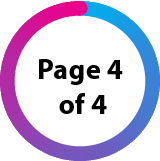Reflection and bias
Reflection
You will be encouraged throughout this module to reflect on your progress. Reflection is the process of looking back and analysing an event, idea, object or experience. Practising reflection during this module should provide you with the skills for the remainder of this module and future studies.
A common tool used is a reflective diary. You can use this to record your thoughts, ideas, key experiences, key feelings and intentions. It will help you develop your research skills through a problem solving and reflective approach to your learning.
The Open University have produced a section on keeping a reflective learning journal (scroll to the bottom of this page), have a look and see how a journal could work for you. Take time to look at our LibGuide on Critical Thinking, there are a set of questions which can also help frame your reflections.
Not all learners are the same and a reflective diary may not be suitable for you. Visual learners may wish to produce flow charts or mind maps. Aural learners may wish to record their thoughts using audio tools. Learners with a reading/writing preference may choose to use bullet points, or record their ideas and thoughts by writing notes on documents. Kinesthetic learners would much prefer to be doing and not reflecting, so their reflections may be very brief as they want to get on with the task in hand. It is likely that you, as a learner, will have different styles and may wish to experiment with different ways to reflect and record.
Take a look at the blog post Set goals and create mind maps: how it can change your life, scroll down and look at the mind map on this page. This gives you a good visual understanding of how to mind map your reflections and ideas. If you are new to mind mapping and would like to give it a try download the Mind Mappers Toolkit.
Bias
Whether we are aware of it or not, we all operate on a belief system. Sometimes we are able to articulate this, but most of the time it is hidden to us. In research your unconscious bias refers to a bias that you are unaware of, and which happens outside of your control. It is a bias that happens automatically and is triggered by your brain making quick judgments and assessments of people and situations, influenced by your background, cultural environment and personal experiences
Fake news can also create a bias by deliberately spreading false information, often via the Internet. Most fake news will have an element of truth which can sway our opinion, especially if this fake news matches our existing biases.
Bias in your research data can take many forms – some intentional and some not. Some of the more common types are:
Bias may not necessarily impact your research negatively. Being aware of your biases you can consciously correct them and reflect on what you could do differently. Remaining unaware, or denying biases, may mean they have a greater impact on your research and the results that come from this.
This completes the researcher section. Move on to the Your Research module.

